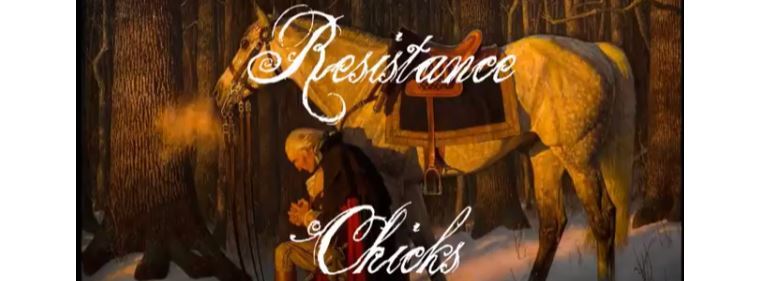
- Web Page
- <a rel="me" resistancechicks.com
Hey y'all, Leah and Michelle here! We're just a couple of sisters who own an urban farm in Ohio. We hope to offer you REAL, relevant news, with maybe a few laughs on the side. We want to empower you, the Resistance, with tools to stand up against tyranny from all sides. As we always say, "we don't lean to the Right and we don't lean to the Left... we lean on the Word of God." So everything you hear from us will be filtered through that. We stand for a righteous America, the one our Founding Fath
PG here, April 7, 2025, Monday, Day 34 Martin Luther of the Reformation. Wrote the first Declaration of Indepedence from the Catholic Church with 95 wrongs the church was doing called The 95 Theses" in 1517. It is called reformation Day. October 31. He testified before a court: "I can not recant, I will not recant (his writings, pamphets), to do so is to go against my conscience and that is a very dangerous thing. "John Locke is expressing the same TRUTH of the gospel of Jesus Christ who delivers us and sets us freefrom sin. The bottom sentence here: ***"No way whatsoever that I shall walk in against the dictates of my conscience will ever bring me to the mansions of the blessed."***
The "vicissitude of orthodox and Arian emperors" refers to the fluctuating fortunes and political shifts experienced by emperors who supported either orthodox Nicene Christianity or the Arian heresy, particularly in the 4th century, with emperors like Constantine and Constantius playing pivotal roles.
vicissitude: a change of circumstances or fortune, typically one that is unwelcome or unpleasant.
How the Church was under the vicissitude of orthodox and Arian emperors is very well known. Or if those things be too remote, our modern English history affords us fresh examples in the reigns of Henry VIII, Edward VI, Mary, and Elizabeth, how easily and smoothly the clergy changed their decrees, their articles of faith, their form of worship, everything according to the inclination of those kings and queens. Yet were those kings and queens of such different minds in point of religion, and enjoined thereupon such different things, that no man in his wits (I had almost said none but an atheist) will presume to say that any sincere and upright worshipper of God could, with a safe conscience, obey their several decrees. To conclude, it is the same thing whether a king that prescribes laws to another man’s religion pretend to do it by his own judgement, or by the ecclesiastical authority and advice of others. The decisions of churchmen, whose differences and disputes are sufficiently known, cannot be any sounder or safer than his; nor can all their suffrages joined together add a new strength to the civil power. Though this also must be taken notice of—that princes seldom have any regard to the suffrages of ecclesiastics that are not favourers of their own faith and way of worship. But, after all, the principal consideration, and which absolutely determines this controversy, is this: Although the magistrate’s opinion in religion be sound, and the way that he appoints be truly Evangelical, yet, if I be not thoroughly persuaded thereof in my own mind, there will be no safety for me in following it. No way whatsoever that I shall walk in against the dictates of my conscience will ever bring me to the mansions of the blessed.









